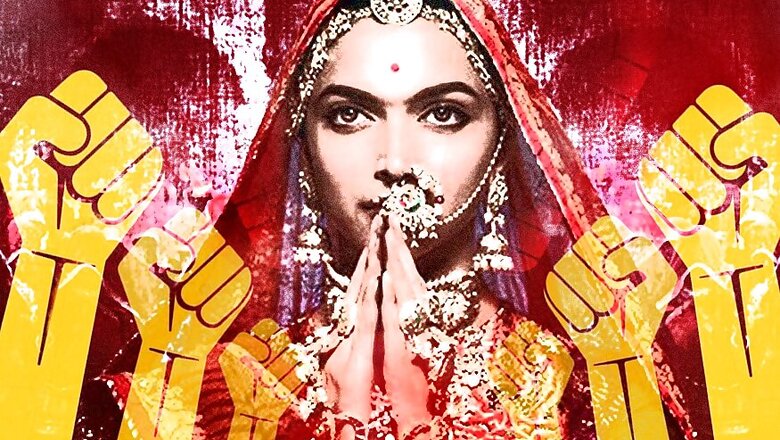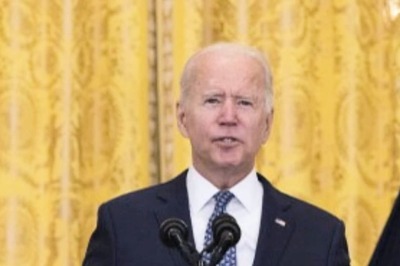
views
New Delhi: In the midst of a raging controversy over his film Padmavati, director Sanjay Leela Bhansali on Thursday appeared before a Parliamentary committee here and maintained that the row over the yet-to-be released movie was just based on rumours, strongly rejecting charges that he had distorted historical facts about the 16th century Rajput queen.
Bhansali was grilled for over two hours by members of the Parliamentary Standing Committee on IT as he appeared before it in Parliament House with Prasoon Joshi, who heads the Central Board of Film Certification (CBFC).
Sources told that the filmmaker was asked why he had screened the movie for a few select journalists even before it was cleared by the censor board.
"All the controversy over the film is based on rumours. I have not distorted facts. The film is based on a poem by Malik Muhammad Jayasi," Bhansali said, referring to the 16th century Indian sufi poet's epic poem "Padmavat".
"We don't intend to hurt anyone's sentiments," Bhansali told the 30-member panel headed by BJP MP Anurag Thakur. Among those who attended the meeting were Congress' Raj Babbar and BJP patriarch LK Advani.
Thakur in a statement said he raised a few questions in view of the Padmavati controversy and get them addressed.
"How and why did this divide and controversy erupt, why is a huge amount of money of taxpayers being utilized towards providing security in wake of this issue, why was the movie showcased to a select media, even before screening it to CBFC. A movie is meant for entertainment, not for creating a tensed atmosphere across the country. This meeting has been called upon to discuss all these issues at length, bring all the relevant stakeholders on a common platform to eventually reach a consensus."
The director has been given time till December 14 to give a written reply to the panel about the movie and the controversy surrounding it.
Thakur said the media too played a role in creating a perception amongst the audience, referring to death threats against Deepika Padukone who is playing the title role. The cases registered against the people who issued inflammatory statements by the respective state governments was not played up by the media. This at times leads to forming a negative mindset amongst the audience, he noted.
The Parliamentary panel had asked him to attend its meeting to explain his point of view as several states have threatened to block the screening of the film, which was earlier scheduled for release on Friday.
The film stoked controversy over assumptions that it has a dream sequence depicting romance between Rajput warrior queen Padmini and Delhi sultan Alauddin Khilji.
Joshi told the panel that the censor board was yet to take a decision about the movie as it would be shown to regional and central screening committees.
Earlier in the day, the censor board chief also appeared before the Parliamentary Committee on Petitions to brief its members about the controversy. Joshi is believed to have told the panel that the film had not yet been approved and the board only cleared the trailer and promos of the period film.
Members who raised objections against the movie include Congress' C.P. Joshi, BJP's O.M. Birla and Shiv Sena's Rajan Vichare. They also sought ban on airing the promos of the film.
The Rajput Karni Sena, an organisation of the Rajput community, has urged a nationwide ban on "Padmavati". Activists of the Sena and some other groups have been protesting against the movie, claiming it "distorts" historical facts.
As six states, including Rajasthan, have already announced that they will not release the film, the Supreme Court on Tuesday took exception to people holding official positions making "prejudicial comments" about the movie, saying these breached the principle of rule of law.
The apex court asked when the matter was pending for consideration before CBFC, how could persons in public authority comment on whether the censor board should issue certificate or not.



















Comments
0 comment